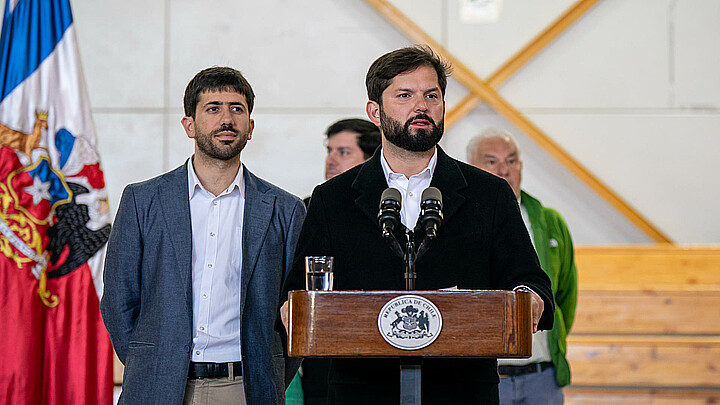Politics
Is Iran is the real winner in Chile's recent presidential election?
Boric’s foreign policy, “backed by a strong anti-Israel domestic constituency, will surely make him go hand in hand with Iranian influence in Latin America”
January 3, 2022 3:57pm
Updated: January 3, 2022 5:20pm
The election of Gabriel Boric to the Chilean presidency has been a cause of concern for pundits worried about the continued success of a country which was once lauded as an “economic miracle.”
Shortly after Boric bested Jose Antonio Kast in a second electoral round, markets fell, the Peso devalued and terrorist groups in Chile’s southern region called for increased violence against Boric's "hippy, progressive and cool left" regime.
But while the dictators of Venezuela, Cuba and Nicaragua were all quick to send their congratulations to left-wing Chilean president-elect Gabriel Boric, another global player was surely also celebrating the left’s return to power in Santiago: the Islamic Republic of Iran.
According to a recent article published by Emanuele Ottolenghi, a Senior Fellow with the Foundation for the Defense of Democracies, Boric’s foreign policy, “backed by a strong anti-Israel domestic constituency, will surely make him go hand in hand with Iranian influence in Latin America.”
“Boric's election represents an opportunity to elevate its presence and influence and protect its assets in this remote corner of Latin America, at a time when a rising tide of leftist populism is once again taking power throughout the region,” he added.
According to Ottolenghi, the Iranian regime has already established cultural centers across Latin America that serve to promote Iranian interests in the region.
In Chile, one of the two Iranian cultural centers is run by a “Hezbollah cleric … with family ties to sanctioned Hezbollah financiers, and strong personal connections to Hezbollah's recruitment and fundraising operations in West Africa.”
Through the establishment of such centers, Iran has been able to “integrate into Chile's public discourse smoothly,” mobilizing Chile’s decidedly anti-Israeli Palestinian diaspora – while also facilitating drug trafficking and money laundering operations.
Iran already made inroads with Boric and during his election campaign, the left-wing former student leader pledged to support boycott, divestment and sanctions (BDS) legislation against Israeli businesses in the West Bank – a promise that the Chilean-Palestinian community has already asked him to stand by.
But if Iran’s involvement in other left-wing led Latin American nations is any indication of its true intentions, one need look no further than Venezuela.
A recent report from the Israeli Alma Center found that Iranian-made unmanned aerial vehicles (UAVs) are now stationed in Venezuela – approximately 2,000 kilometers “from skyscrapers in Miami.”
Maj. Tal Beeri, head of the research department at the defense watchdog located in northern Israel, said the new report shows that Iran's "UAV army" is comprised of “thousands of unmanned systems, which are designed to gather intelligence, and to strike surface or air targets, either by launching missiles and bombs, or conducting a suicide explosive attack by diving into the target.”
Iran has unveiled multiple UAVs in recent years with ranges upwards of 1,500 miles.
The Iranian Supreme Leader Ayatollah Khamenei considers Nicolas Maduro’s regime in Venezuela to be a key ally because it is both anti-American and strategically located. Tehran appears to believe that placing military assets so close to American soil could contribute to its deterrence posture against Washington, helping the U.S. to “think twice” before taking military action against Iran.
“Ultimately, the Iranians have marked out Venezuela as a potential base for some sort of activity against the U.S. in the future,” Beeri noted. “Even if they do not actually act from it, in Iran’s strategic view, merely having a presence there is a threat to the U.S.”
In recent years, Iran has also provided economic and military aid to Venezuela – while also helping Caracas form Popular Mobilization Units (PMUs), a complex aggregation of militias which have historically helped Iran project influence in Iraq and Syria.








